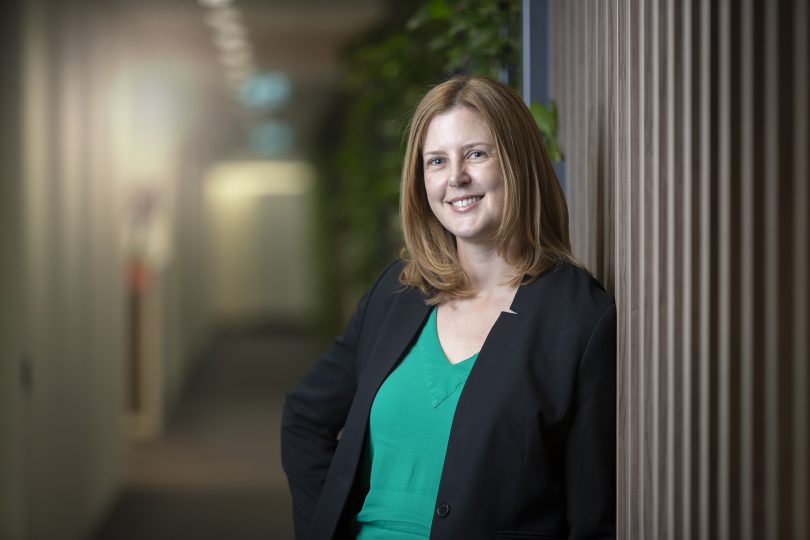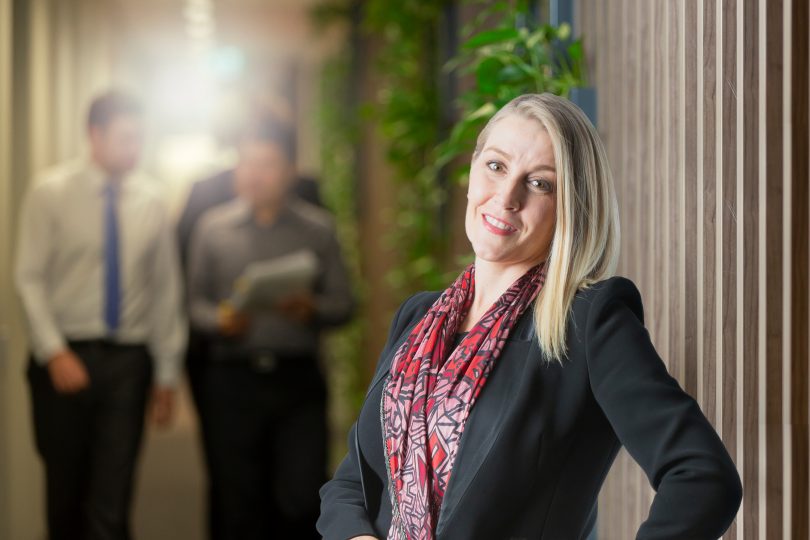
Christine Murray, Managing Partner at Meyer Vandenberg. Photos: Supplied.
More than 50 years since the start of the feminist movement in the 1960s which saw greater numbers of women entering the workforce, workplace gender equality is still a contentious topic.
While society has come a long way, certain industries still struggle to achieve an ideal balance. The legal profession is undoubtedly one such industry, frequently dominated by “boy’s clubs” that make it difficult for women who have dedicated their lives to lawyering to reach positions of seniority.
A 2018 report from the Women Lawyers Association of NSW found that:
- Of all directors in law firms, about 21% are women
- Only 25% of all law firm partners are women
- No firm reporting to the Workplace Gender Equity Agency had more than 50% female partners
Meyer Vandenberg Lawyers is one law firm that is bucking the trend though, with a 50/50 male and female partnership split, and a female Managing Partner.
Christine Murray, Managing Partner at Meyer Vandenberg, says law firms need to adapt the way they do business in order to create gender equality.
“First, we need to trust our people to do the work – whether or not they are in our line of sight. While a proportion of our workforce are on flexible working arrangements, including working flexible hours or working from home, I never hear an allegation that someone is not pulling their weight.
“Colleagues trust each other to get the work done, and clients trust that they are being looked after, even if someone is not available during traditional working hours. And when we trust our staff to manage themselves, they trust us. It allows us to work together collaboratively; to make the right decisions for our people and the business.”
Some of Meyer Vandenberg’s impressive stats include:
- A majority of female legal graduates hired in 2018
- Women account for 64% of all employees, men 36%
- Women account for 67% of paralegals at the firm, men 33%
- Women account for 50% of directors at the firm, men 50%
Mindful of creating an inclusive and equitable workplace culture, the firm offers a unique combination of attractive remuneration, flexible working arrangements (47% of staff are on flexible working arrangements), career progression and training. They also actively support UN Women Australia as a corporate partner, which empowers women and fosters gender equality worldwide.
Alisa Taylor, one of the firm’s four partners, has been with Meyer Vandenberg for eight years and recently returned from maternity leave. She says the process felt very natural, and she only returned to work when she was personally ready to come back.
“Paid maternity leave is fairly commonplace in organisations now but usually not at an ownership level. We are proud to have paid maternity leave for owners, just as we do for employees. And although learning to juggle running a business with caring for a baby is really hard, having supportive and flexible business partners and staff has made a huge difference.
“The key to having a culture like ours that promotes gender equality is to not allow a ‘club’ mentality to occur. Whether it be men or women, if staff can’t develop genuine connections with leadership because leadership groups are based on gender, it becomes very difficult.
“We’ve always had women at the top, which has made it easier for women to rise to the positions they should have. It is about hiring the best person for the job, but it’s also about being careful that you don’t allow pockets to form which can become exclusive.”

Alisa Taylor, partner at Meyer Vandenberg.
Alisa says having an equal male/female partnership in a commercial law firm is rare, and a female Managing Partner is exceptionally rare.
“It’s a wonderful achievement for Christine and the firm, and a testament to our culture. Having a female mentor at that level is also very valuable, because it shows what can be achieved. All our junior lawyers have direct access to management and there is no rigid hierarchy, which is equally important.”
For any person suffering with gender inequality in their workplace, Alisa recounts her own experience as a budding lawyer.
“I remember walking into a meeting with a whole boardroom full of men and I was the only woman, and I felt incredibly intimidated. But looking back now that I know all the people who were in that room, I had no reason to be intimidated.
“Don’t self-exclude because you’re afraid to break into a network of people different to you – whether it be sex or age or another characteristic. You may not be able to change the culture but you can reach out, build connections, and show that you want to be included. It may be easier than you believe.”
To learn more about Meyer Vandenberg’s culture, or to chat with the friendly team, call them on (02) 6279 4444.
Original Article published by Rachel Ziv on The RiotACT.


What's Your Opinion?